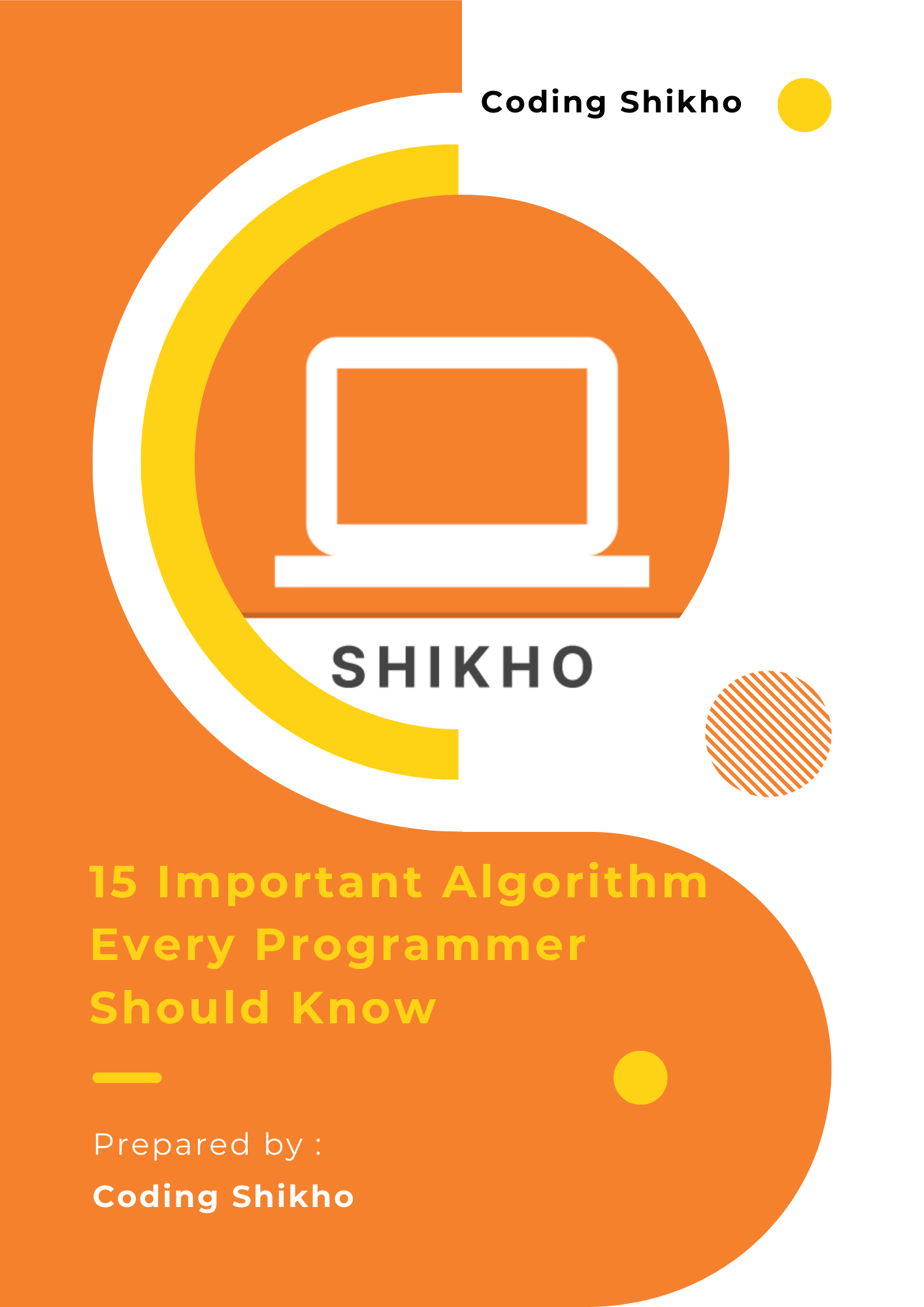Description
Coding Shikho
can provide a general description of 15 important algorithms every programmer should know:
Searching Algorithms:
- Linear Search: A simple search that iterates through a list comparing each element to the target value.
- Binary Search: Only works on sorted data, repeatedly dividing the search space in half until the target is found.
Sorting Algorithms:
- Selection Sort: Repeatedly finds the minimum element and swaps it to the beginning of the unsorted list.
- Bubble Sort: Repeatedly compares adjacent elements, swapping them if they are in the wrong order. (Not very efficient for large datasets)
- Insertion Sort: Builds the final sorted list one element at a time by inserting each new element in its correct position.
- Merge Sort: Divides the list into sub-lists, sorts them recursively, and then merges them back together. (Efficient but requires extra space)
- Quick Sort: Picks a pivot element and partitions the list based on it, recursively sorting the sub-lists. (Generally efficient but can have worst-case scenarios)
Graph Algorithms:
- Breadth-First Search (BFS): Explores a graph systematically, visiting all the neighbors of the current node before moving to the next level.
- Depth-First Search (DFS): Explores a graph as far as possible along one branch before backtracking and exploring another branch.
Other Important Algorithms:
- Dynamic Programming: Breaks down a complex problem into smaller sub-problems, storing solutions to reuse them efficiently.
- Greedy Algorithms: Make the locally optimal choice at each step with the hope of finding a global optimum. (May not always find the best solution)
- Backtracking: Tries all possible solutions systematically, discarding non-viable options.
- Hash Tables: Use a hash function to map data to an index for faster lookups.
- Recursion: A function that calls itself, useful for solving problems that can be broken down into smaller versions of themselves.
- Prim’s Minimum Spanning Tree: Finds the minimum cost connecting edges that connect all nodes in a graph.
This is not an exhaustive list, but it covers a wide range of fundamental algorithms that are essential for programmers to understand and apply in various coding scenarios.


